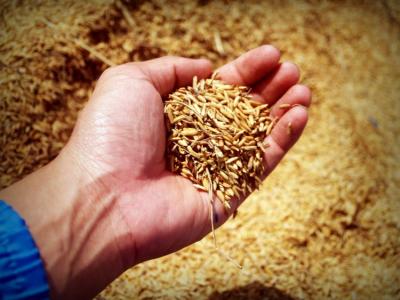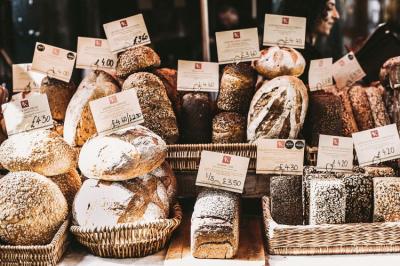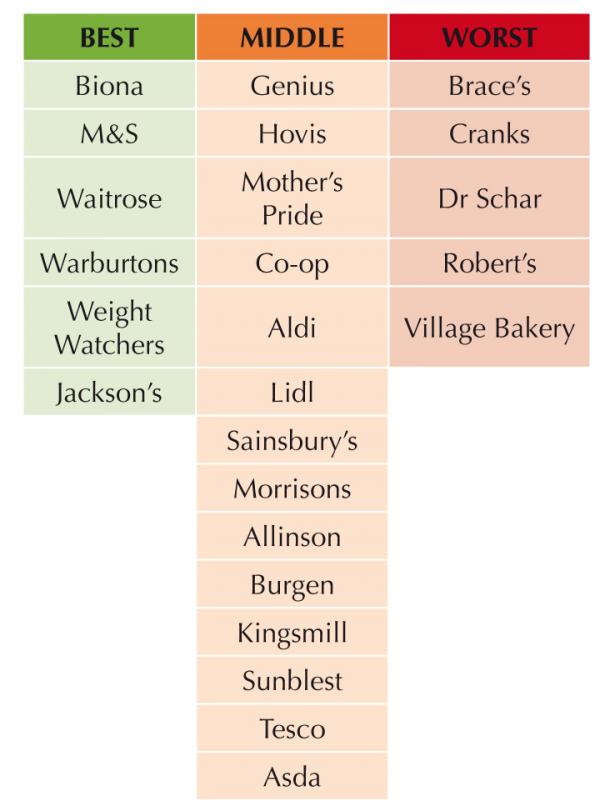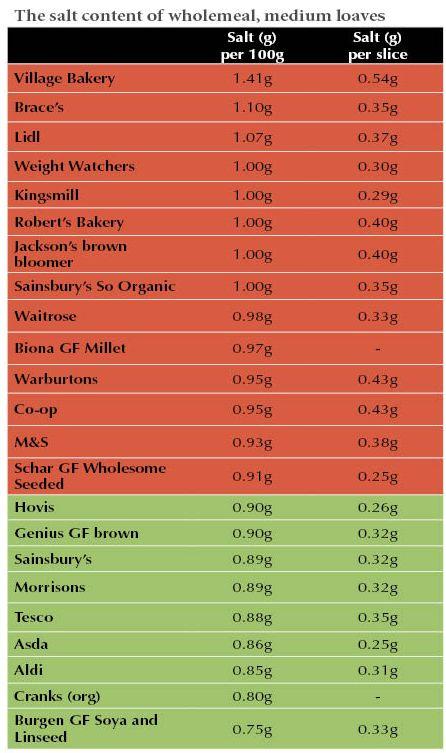This is one of our archived guides and as such does not include a score table. However we have kept the page alive so that you can continue to see the key issues in this sector, in both the buying advice and the in-depth analysis.
If there are particular brands you are interested in they may appear in other food guides, or you can search for the company name in the search box at the top of the web page.
Finding eco-friendly bread
A loaf of bread only needs to contain four ingredients: flour, water, yeast and salt. Yet the majority of UK households (97%) purchase ‘wrapped and sliced’ bread that has been produced using the Chorleywood Process (CHP) and contains additional ingredients such as hard fats, extra yeast, ‘processing aids’, E numbers and a number of other chemicals.
Recently the ingredients added to bread have been making headlines. An investigation by the Real Bread Campaign in April 2018 found wholemeal loaves to contain up to 26 ingredients and additives, including refined flour. The regulations state that the name ‘wholemeal’ can only be used on bread if all the flour used as an ingredient in preparation is wholemeal.
The campaign group has also been challenging bread and sandwich chains’ claims that the bread that they use is “natural”. In April 2018, the Advertising Standards Agency agreed with the Real Bread Campaign that the coffee chain Pret a Manger’s use of the term “natural” when describing its sandwiches was misleading.
Wrapped and sliced bread
The ‘wrapped and sliced’ bread market is highly concentrated with three main manufacturers – Allied Bakeries, Hovis and Warburtons – accounting for nearly three-quarters of sales in the UK.
However, according to The Grocer, many brands in this market are experiencing declining sales. Trends such as low-carb diets, concerns about gluten and an increase in alternatives to the lunchtime sarnie – from protein pots and salad bowls to sushi and macaroni cheese – have all put pressure on bread brands to revise their offerings to include seeded and low-gluten varieties.
This guide just focuses on the largest brands producing wrapped sliced bread, plus widely available gluten-free bread brands. All nine supermarkets are also included as they sell own-branded sliced and wrapped bread.
The only supermarket to produce an organic version is Sainsbury’s. However organic loaves were available at some of the supermarkets including Co-op, Sainsbury’s, Tesco and Waitrose.
Some of the supermarkets also sell their own range of gluten free breads including Sainsbury’s and Tesco.
In-store bakeries
According to the Federation of Bakers there are three principle sectors in the baking sector in the UK:
- Large plant bakeries
- In-store bakeries
- Craft bakers
In-store bakeries (ISBs) within supermarkets produce about 12% of baked goods, while larger (plant) baking companies make up the majority – 85% – of the bread produced. The remainder is made up of high-street retail (craft) bakers.
All the supermarkets in this guide offer freshly baked bread from their in-store bakeries. However, these bakeries have attracted criticisms over the years for being merely ‘tanning salons’ where loaves made and part-cooked elsewhere are simply browned.
The Real Bread Campaign found that ‘freshly baked’ bread from supermarkets can be laden with artificial ingredients because loopholes in labelling rules mean they need not list all additives and processing aids.
In 2014, Defra updated its Food Information Regulations. However, it failed to tighten definitions which allow frozen in-store ‘bakery’ bread to be marketed with the claims that it is ‘fresh’ or ‘freshly baked’.







